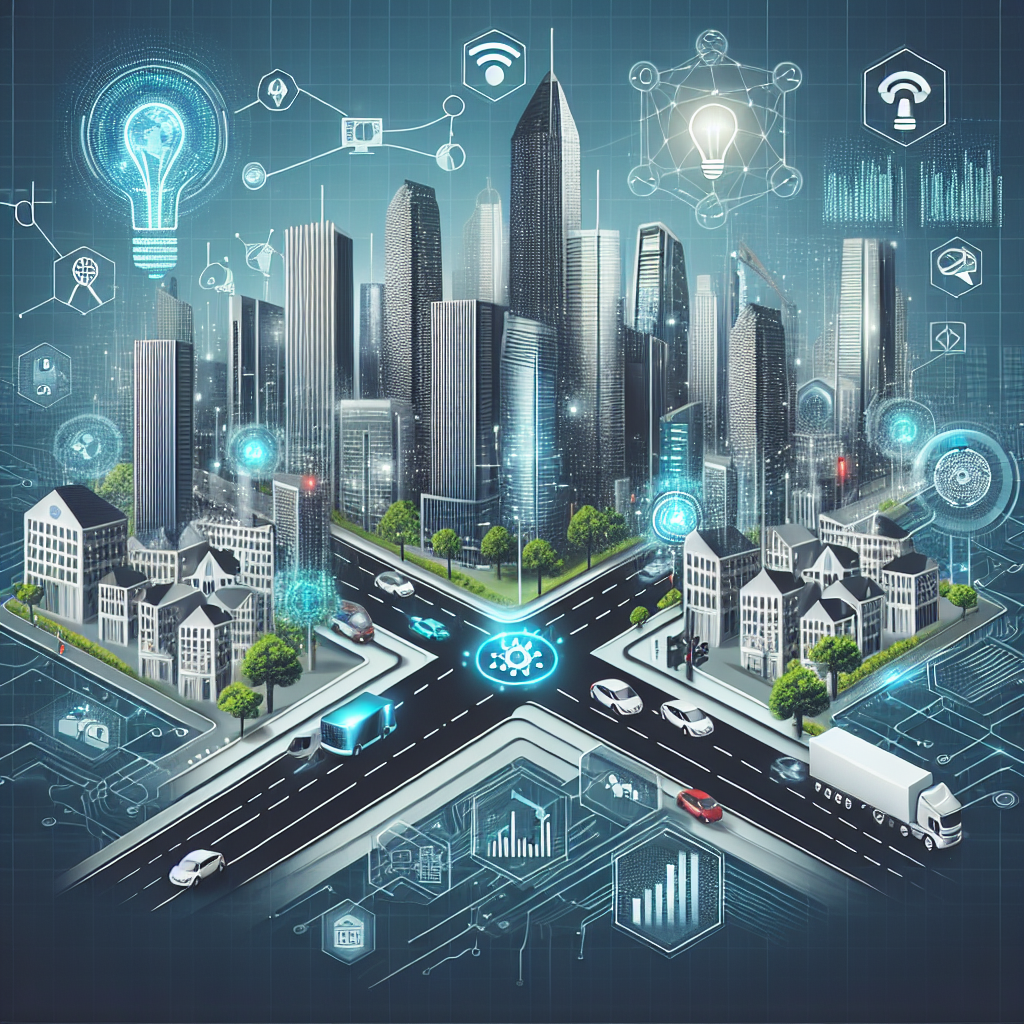Implementing AI-driven Solutions for Smart Cities
In recent years, the concept of smart cities has gained momentum as urban areas look for ways to improve efficiency, sustainability, and quality of life for their residents. One of the key components of smart cities is the use of artificial intelligence (AI) to drive solutions that can help cities better manage their resources and infrastructure. In this article, we will explore the benefits of implementing AI-driven solutions for smart cities and discuss some of the challenges that cities may face in adopting this technology.
Benefits of AI-driven Solutions for Smart Cities
There are numerous benefits to using AI-driven solutions in smart cities. Some of the key advantages include:
1. Improved Efficiency: AI can help cities optimize their operations by analyzing data in real-time and providing insights that can lead to more efficient use of resources. For example, AI can be used to predict traffic patterns and adjust traffic lights accordingly, reducing congestion and improving traffic flow.
2. Sustainability: AI can help cities reduce their environmental impact by optimizing energy usage, waste management, and transportation systems. For example, AI can be used to optimize the routing of garbage trucks to reduce fuel consumption and emissions.
3. Enhanced Public Safety: AI can help cities improve public safety by analyzing data from various sources, such as surveillance cameras and social media, to identify potential threats and respond more quickly to emergencies. For example, AI can be used to detect suspicious behavior in crowded areas and alert authorities.
4. Better Citizen Services: AI can help cities provide better services to their residents by streamlining processes and improving communication. For example, AI-powered chatbots can be used to answer citizens’ questions and provide information about city services.
Challenges of Implementing AI-driven Solutions for Smart Cities
While the benefits of using AI-driven solutions in smart cities are clear, there are also challenges that cities may face in implementing this technology. Some of the key challenges include:
1. Data Privacy and Security: AI relies on vast amounts of data to function effectively, which raises concerns about data privacy and security. Cities must ensure that they have robust data protection measures in place to safeguard sensitive information.
2. Cost: Implementing AI-driven solutions can be expensive, especially for cash-strapped cities. Cities must carefully consider the costs and benefits of AI technology and prioritize investments based on their unique needs and resources.
3. Digital Divide: Not all residents have equal access to technology, which can create a digital divide in smart cities. Cities must ensure that AI-driven solutions are accessible to all residents, regardless of their socioeconomic status.
4. Ethical Considerations: AI technology raises ethical questions about how data is collected, used, and shared. Cities must establish clear guidelines and policies to ensure that AI is used responsibly and ethically.
FAQs
1. What types of AI-driven solutions can be used in smart cities?
There are many different types of AI-driven solutions that can be used in smart cities, including predictive analytics, machine learning, natural language processing, and computer vision. These technologies can be applied to a wide range of urban challenges, such as traffic management, energy efficiency, public safety, and citizen services.
2. How can cities ensure that AI-driven solutions are inclusive and accessible to all residents?
Cities can ensure that AI-driven solutions are inclusive and accessible to all residents by conducting thorough community engagement and outreach efforts. This can include hosting public forums, conducting surveys, and working with community organizations to gather feedback and input from residents. Cities should also prioritize digital literacy programs and affordable internet access to ensure that all residents have the skills and resources needed to benefit from AI technology.
3. How can cities address concerns about data privacy and security when implementing AI-driven solutions?
Cities can address concerns about data privacy and security by implementing robust data protection measures, such as encryption, access controls, and data anonymization. Cities should also be transparent about how data is collected, used, and shared, and provide residents with clear information about their rights and options for opting out of data collection. Additionally, cities should work with experts in cybersecurity and privacy to ensure that their AI-driven solutions comply with relevant laws and regulations.
4. What are some examples of successful AI-driven solutions in smart cities?
There are many examples of successful AI-driven solutions in smart cities around the world. For example, Singapore has implemented an AI-powered traffic management system that uses real-time data to optimize traffic flow and reduce congestion. Barcelona has used AI to improve waste management by optimizing the routing of garbage trucks based on factors such as traffic patterns and weather conditions. And New York City has implemented an AI-powered chatbot that helps residents find information about city services and report issues to city officials.
In conclusion, AI-driven solutions have the potential to transform smart cities by improving efficiency, sustainability, and quality of life for residents. While there are challenges to implementing this technology, cities can address these challenges by prioritizing data privacy and security, ensuring inclusivity and accessibility, and addressing ethical considerations. By harnessing the power of AI, cities can create more resilient, sustainable, and livable urban environments for all residents.

